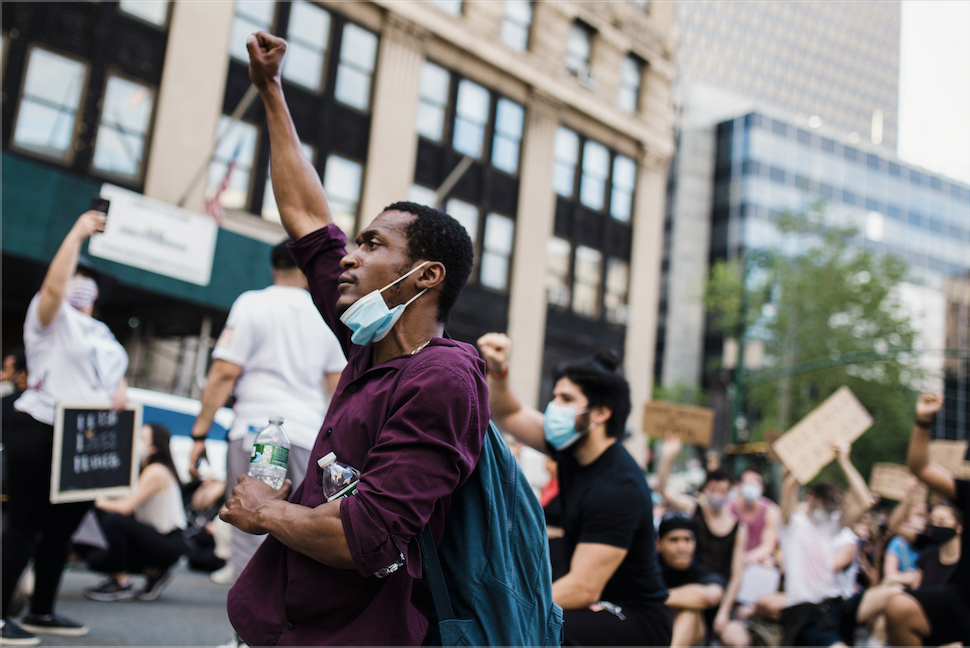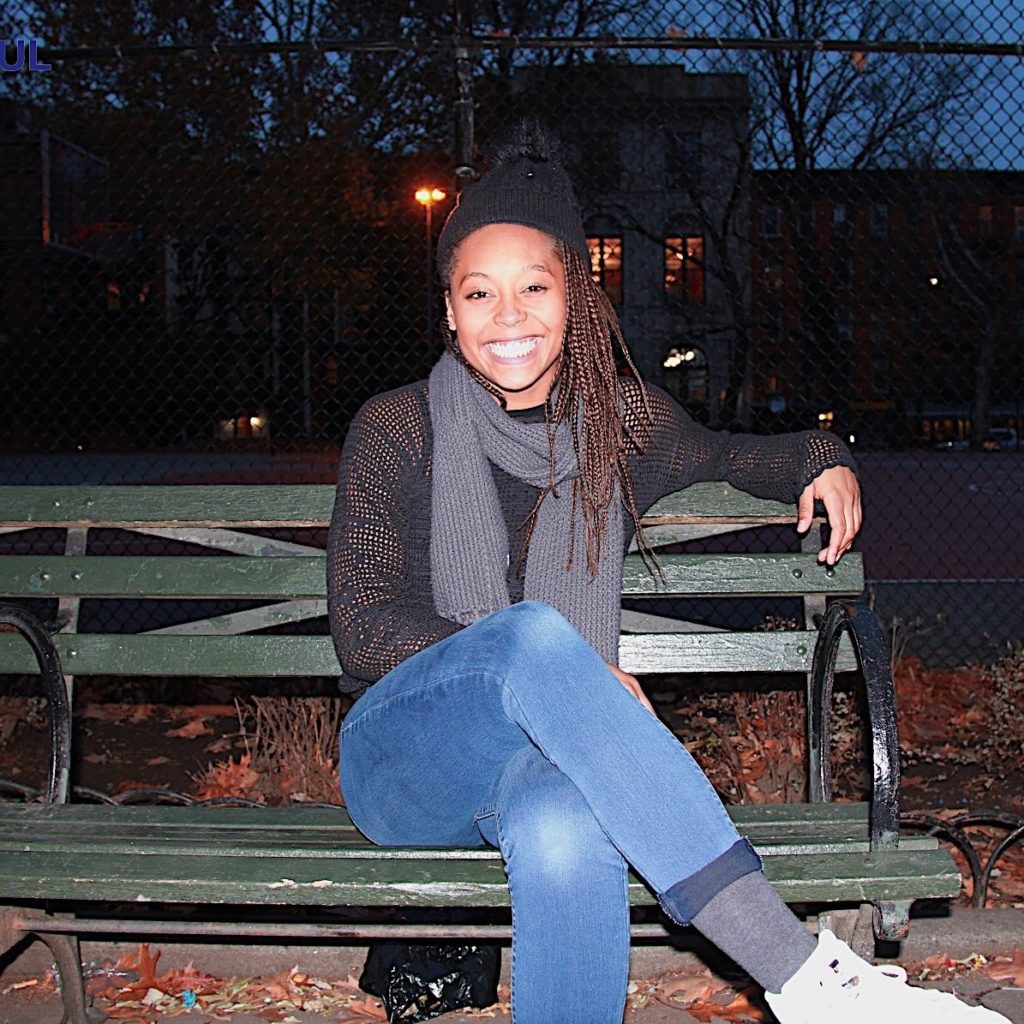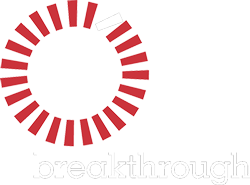
How To Effect Change Through The Political System
“We are voting for the voices that haven’t been heard and the stories that haven’t been told.”
By Lauren Stockmon Brown
This piece is part of We Count!, a multimedia campaign to build the civic power youth of color, especially those from LGBTQ+ and immigrant communities, and amplify their ideas and dreams for the future.
In wake of the killings of Jacob Blake, Breonna Taylor, Tony McDade, Ahmaud Aubrey, George Floyd and many other Black people killed by police, America is at its tipping point. It is totally normal to wonder how greatly our voices can shine in the midst of all this violence and a global pandemic. This country has been faced with generation after generation of racial, economic and social inequalities, so, how can we effectively improve the health of our society when faced with so many long-standing obstacles?
But if 2020 has shown anything, it is that participating in civic activities like VOTING is our hard-fought right and a great tool for change.
Inaccurately, many of us were taught to believe that following the ratification of the 19th amendment in 1920, American women were granted the right to vote. However, this is disproven by the fact that Black women were not allowed to politically exercise their voice in systems of government until 1965. Following centuries of tactical strikes, protests, and boycotts, the fight continues. The impact of the African Diaspora is still repeatedly erased from our public consciousness by America’s institutions of power which systematically mistreat people within a specific minority group, gender or sexual identity and financial class.
From a historical standpoint, one of the Black community’s greatest assets is the ability to organize on our own behalf. Take some of the most well known names in Black advocacy to date: Martha P Johnson, an American Transgender-rights activist who became the pioneer of the LGBTQI+ movement in 1969. Martin Luther King’s “I Have a Dream Speech.” Ruby Bridges, the first African American child to integrate an all-white school. Jackie Robinson’s choice to break the Major League Baseball color line in 1947 and the list goes on.
These moments in American history are imperative to remember as examples of our ability to take action, lead boycotts, strikes and rebellions. If we choose to honor the impact of our political right to exercise our voice in systems of government, we will continue our legacy as change agents.
In modern times, we are voting for the voices that haven’t been heard and the stories that haven’t been told. We have the power to implement and continue this fight for “visibility” this year on November 3rd.
SOURCE: https://twitter.com/KingJames/status/1299022257029816320
Time and time again the Black community is faced with the dichotomy of fighting for safety, representation, individuality and free-will, while living in the aftermath of 400 years of oppression, bondage and silence. Just look at the comments on this viral tweet from Lakers phenomenon, Lebron James. The responses are telling. Many of James’ Twitter followers ridicule his tweet in support of the Black Lives Matter movement and ignore his “call to action” through voting. Conversely, James’ other supporters applaud his efforts and hope for a longer lasting moment of change. His community expressed a sense of uncertainty while questioning why engaging in society through tactics like voting truly matter.
Growing up in a suburban bubble that sealed itself from most risks of “intrusion,” I felt ambivalent toward this idea of civic engagement. Then November 2008 came. I was 10 years old, and I remember having an intimate connection to this deeply bellowed voice which consistently articulated the words “hope,” “acceptance” and “change.”
Today, I wonder what my middle school teacher must have been thinking while the only Black girl in her class was constantly rooting for Barack Obama.Whether it was by sharing a random fact about him I had heard around the dinner table, or explaining why he was the most electable candidate.
I wasn’t at the legal voting age just yet, so I didn’t understand how significant it was to root for someone like President Obama. But, I certainly knew how meaningful his role as a Black politician, and his presence on my T.V screen meant to my family as we saw what felt like a piece of ourselves fight for “change.”
12 years later, and President Obama is still egging us on to remain actively engaged in our democracy. Just a few days ago, I was scrolling through Instagram and found his #IWILLVOTE.COM campaign. The post read “Do not let them take away your power. Do not let them take away your democracy. Do make a plan right now for how you are going to get involved and vote.” Obama was also involved in the recent NBA strikes, as one of the government officials who counseled a group of NBA players as they boycotted.This is only one example of how strong our voices and “call to action(s)” can spread in an organized format. Katie Hill, a spokesperson of Obama told CNN that, “They discussed establishing a social justice committee to ensure that the players’ and league’s actions this week led to sustained, meaningful engagement on criminal justice and police reform.” In this moment, I realized how significant and tangible concrete steps towards political dismantling or abolition can become through group organizing.
By continuing to use the power of voice and advocating for systemic change through voting, we have begun to see ourselves in every aspect of American society. As athletes disrupt pro sports and artists live on as legends, activists and musicians give us a meaningful and creative community to be a part of. Members of the Black community are actively creating steps to end police brutality, gain equitable pay, increase media representation, diversify the education system, and strengthen a secure space in which we are no longer treated as a monolithic, forgotten or a subordinate group of people. We are turning athletic arenas and basketball stadiums into voting booths while the public is forced to listen to our demands.
Growing up, I spent more time resenting my physical differences when comparing myself to my white counterparts; rather than celebrating my Black skin, tightly coiled curls and welcoming our inherent sense of resilience with open arms. I was in search of purpose, something to believe in, and a face that looked like mine.
Little did I know that our community’s ability to be strategic and vulnerable when faced with uncertainty would allow me to unlock my greatest asset and favorite secret
weapon—
My voice.
Now is the time to hold ourselves and the communities closest to us accountable for showing up and using any and all platforms we have in order to implement lasting efforts for change… I’ll see you at the voting polls.

Lauren Stockmon Brown is a passionate storyteller and writer who focuses on race, gender, mental health and politics. She is a Fulbright Scholar and founder of the “My Colorful Nana” Project, a collected group of “Generous Thinkers” and a podcast series that encourages listeners to celebrate their individual definitions of the words “beauty,” “femininity,” and cultural identity. Learn more about her work and journey on “My Colorful Nana” on Instagram & Twitter.
